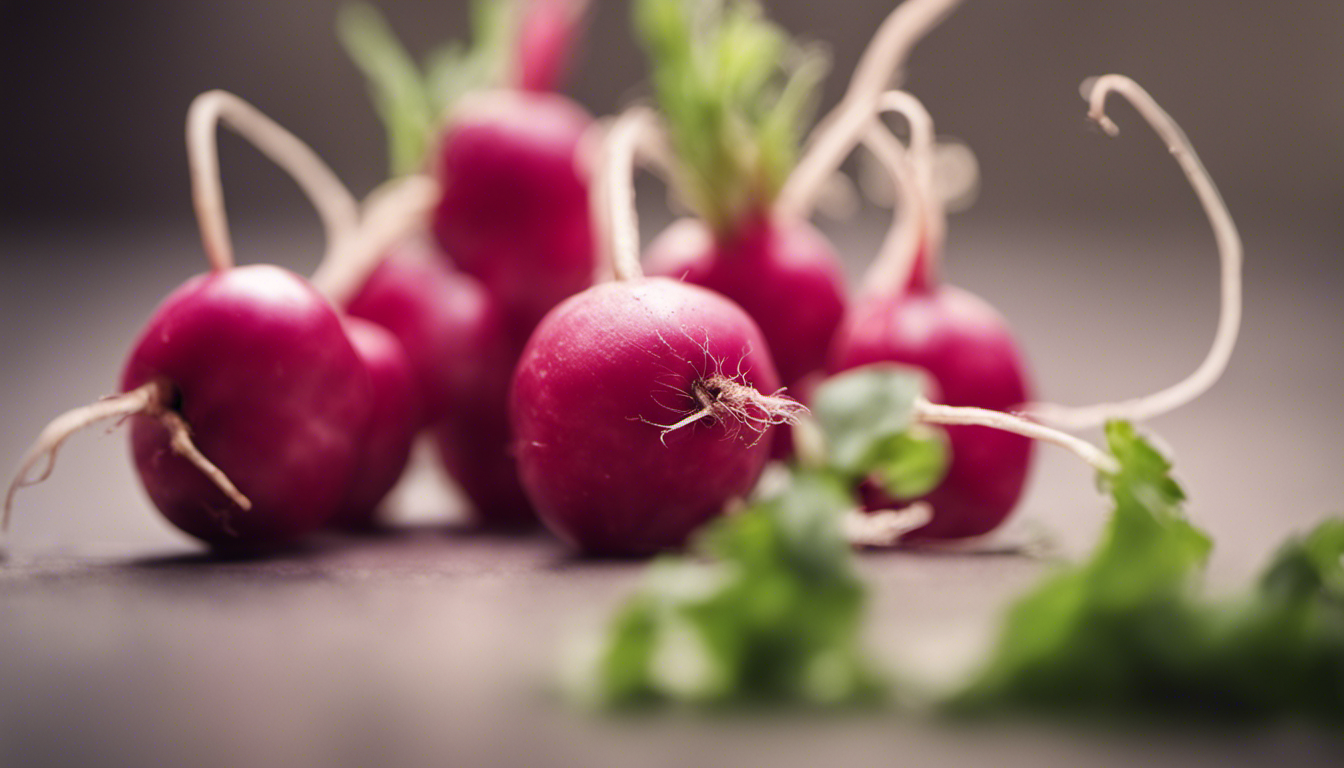
Vegetables play a vital role in maintaining a healthy diet, particularly for those adhering to a low-carb lifestyle like the Keto Diet. Nevertheless, it’s important to discern which vegetables align with this dietary approach and which do not. Radishes, categorized as root vegetables, often raise questions regarding their carbohydrate content and compatibility with the keto diet. In this article, we will explore the nutritional aspects of radishes, delve into various radish varieties, and offer delectable low-carb radish recipes to enhance your carb-conscious dietary journey.
Are Radishes Low in Carbohydrates?
Radishes fall into the category of non-starchy vegetables and are indeed low in carbohydrates. According to the USDA, a cup of sliced raw radishes contains only 2.08 grams of net carbs. Even when cooked or pickled, radishes maintain their low-carb profile. For instance, a cup of pickled radishes contains 3 grams of net carbs, making them a suitable choice for people following a ketogenic diet.
Types of Radishes
- Red Radishes: These round or Easter egg-shaped radishes possess a peppery flavor and a satisfying crunch. Red radishes are keto-friendly, with just 2.33 grams of net carbs per 100 grams, making them a great addition to roasted vegetable dishes.
- Daikon Radish: Daikon radishes, larger than red radishes, offer a sweet flavor and white flesh. They can be enjoyed both raw and cooked, providing 2.8 grams of net carbs per cup of cooked Daikon radish.
- Watermelon Radish: Resembling a watermelon with its white or green flesh, this radish variety offers a milder flavor compared to others.
- French Breakfast Radish: Identified by their oblong, reddish-pink bulbs, French breakfast radishes are sweet and commonly consumed raw. They are also a notable source of vitamin C.
- Round Black Radish: These coal-colored radishes boast a bold and pungent flavor, making them ideal for creating radish chips when thinly sliced and baked. They are also known for their anti-inflammatory properties.
Using Radishes as a Potato Substitute
If you’re seeking a low-carb alternative to potatoes, radishes prove to be an excellent choice. Unlike potatoes, which are high in carbs, radishes offer a similar taste and texture while remaining low in carbs. For instance, a medium-sized baked white potato contains a substantial 32.87 grams of net carbs, whereas a medium-sized baked sweet potato carries 25.95 grams of net carbs. By substituting radishes for potatoes, you can relish dishes like roasted potatoes or loaded potatoes without compromising your commitment to a low-carb lifestyle.
Keto Radish Recipes
Loaded Radishes Recipe:
- Ingredients: 1 medium radish, 2 tablespoons butter, 1/2 cup shredded cheese, sea salt and pepper to taste, 2 green onions, 1/2 cup sour cream, 2 tablespoons chopped parsley.
- Instructions: Wash, trim, and chop radishes. Heat butter in a skillet and add radishes. Sauté until they turn golden brown. Season with salt and pepper. Sprinkle with cheese and parsley, then bake until the cheese melts. Serve with sour cream.
Low Carb Creamy Radish Cauliflower Potato Salad:
- Ingredients: 1 pound radishes (thinly sliced), half a head of cauliflower, 2 hard-boiled eggs (sliced), 1/2 cup red onions (chopped), 1/2 cup homemade mayonnaise, 2 celery stalks (diced), 2 tablespoons chopped dill, 2 tablespoons lemon juice, Himalayan pink salt, and cayenne pepper to taste.
- Instructions: Blanch cauliflower for 3 minutes, then drain and rinse with cold water. Boil radishes for 10 minutes until fork-tender, then drain and set aside. In a large bowl, mix mayonnaise, dill, and lemon juice. Add cauliflower, radishes, onion, eggs, and celery, and toss to combine. Season with salt and pepper. Refrigerate and serve when cool.
Keto Roasted Radishes:
- Ingredients: 1 pound radishes (quartered), 1/2 cup olive oil, 2 tablespoons fresh garlic (minced), sea salt and pepper to taste, 1/2 cup parmesan cheese (grated).
- Instructions: Toss radishes with olive oil and minced garlic. Preheat the oven to 400 degrees. Place radishes on a baking sheet lined with parchment paper. Drizzle with olive oil, sprinkle with salt and pepper, and roast for 45-60 minutes. Sprinkle with parmesan cheese and roast for an additional 5 minutes. Serve hot.
Raw vs. Cooked Radishes
Both raw and cooked radishes offer nutritional benefits. Raw radishes are slightly lower in calories and carbs while having a higher protein content. However, cooking radishes enhances the bioavailability of vitamins and minerals, although some water-soluble vitamins may be lost. Incorporating both raw and cooked radishes into your diet can maximize their nutritional advantages.
Benefits of Radishes
- – Good for Digestive Health: Radishes are an excellent source of fiber, promoting gut health and preventing constipation.
- – Anti-carcinogenic Properties: Certain compounds in radishes have shown potential in preventing specific types of cancers.
- – Heart Health: The soluble fiber in radishes can improve lipid profiles, reducing the risk of cardiovascular disease.
- – Strengthened Immunity: Radishes are rich in vitamin C, which bolsters the immune system.
Avoid Combining Radishes with Cucumbers
While cucumbers are keto-friendly, it’s advisable not to combine them with radishes. Cucumbers contain ascorbinase, an enzyme that hinders the absorption of vitamin C from radishes, diminishing their nutritional benefits.
Radishes are indeed a low-carb vegetable suitable for people adhering to a ketogenic diet. With various types and enticing recipes, radishes can serve as a satisfying substitute for potatoes. Whether consumed raw or cooked, radishes offer a high number of health benefits, including improved digestion and enhanced immunity. However, remember to avoid combining radishes with cucumbers due to their interaction with vitamin C. Feel free to experiment with different radish recipes and savor the versatility of this tasty and nutritious vegetable.